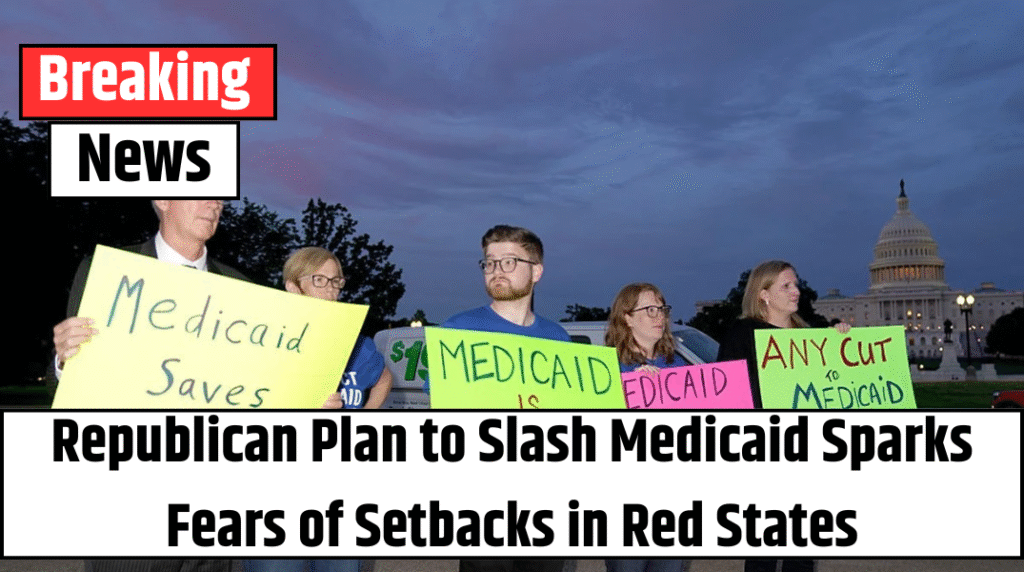WASHINGTON, D.C. — June 2025 — A sweeping Senate proposal is drawing fierce backlash from health care advocates, policy analysts, and state officials, who say it risks gutting vital medical programs for millions of Americans while rewarding corporations and the wealthy with tax breaks.
The legislation — known unofficially as the “Big Beautiful Bill” — mirrors former President Donald Trump’s agenda and proposes historic cuts to Medicaid and Affordable Care Act (ACA) subsidies to pay for its tax incentives. While the House version was already labeled the largest Medicaid rollback since the program’s inception in 1965, critics argue the Senate version is even more severe.
“The Senate has taken a bad bill and made it worse,” said Anthony Wright, Executive Director of Families USA. “It puts millions of lives at risk just to finance giveaways to those who need them least.”
What’s at Stake?
Medicaid, the federal-state program that provides health coverage to more than 71 million low-income and disabled Americans, is at the heart of the debate. While Senate Republicans frame the proposal as a “reform,” advocates call it a deliberate dismantling of one of the nation’s most cost-efficient safety nets.
The Senate version introduces additional bureaucratic barriers, expands eligibility checks, and implements new work requirements—a move that experts say would push even eligible individuals off the rolls due to red tape.
Also Read – FDA Approves Groundbreaking HIV Drug That Nearly Stops Transmission
According to the Congressional Budget Office, the House-passed version would leave 16 million more people uninsured by 2034. The Senate’s version hasn’t been scored yet, but healthcare researchers say it could be even more devastating.
Digging Into the Cuts: Two Quiet but Dangerous Changes
Beyond the work requirements, the Senate proposal targets two financial lifelines states use to fund Medicaid:
1. Provider Taxes
A longstanding practice, provider taxes allow states to increase payments to healthcare providers, which then boosts the federal government’s matching funds. The state reclaims some of the costs by taxing those same providers.
It’s complex but effective — and legal. Yet the Senate bill would cut the maximum provider tax rate nearly in half, potentially stripping states of billions in funding.
“In Colorado, we had to slash transportation and maternal health programs just to close a $1.1 billion healthcare gap,” said State Treasurer Dave Young. “We’re running out of places to cut.”
2. State-Directed Payments
States use these payments to raise Medicaid reimbursement rates, especially in underserved areas or for high-need populations. These payments can help offset low Medicaid pay, which often discourages doctors from accepting Medicaid patients.
The Senate bill would tie these payments to whether a state expanded Medicaid under the ACA, a move seen as politically motivated punishment. In essence, states that opted to expand coverage will face tougher restrictions.
“Good Governance” or Targeting the Vulnerable?
Senator John Thune (R-SD) defended the bill, saying it removes people “who shouldn’t be on the rolls” and restores fiscal discipline. But health law experts challenge that claim.
“This bill punishes states for using legal tools to fund care,” said David Machledt of the National Health Law Program. “And it punishes people — many of whom are working — who simply struggle to navigate the paperwork.”
Also Read – New RSV Vaccine Approved for Infants as COVID and Measles Cases Rise in 2025
Medicaid Cuts Could Hit Everyone, Not Just the Uninsured
Advocates warn that even people with private insurance aren’t safe from the fallout. Here’s how:
-
Hospitals are legally required to treat patients in emergencies, even those who can’t pay. If Medicaid funding disappears, those unpaid costs get passed along to private insurers.
-
Commercial insurance premiums could rise as providers try to recover lost Medicaid funding.
-
Medical debt could increase as hospitals seek aggressive ways to collect shortfalls.
“If this bill passes, your insurance won’t just cost more — your deductible, your copay, your ER visit — everything will go up,” warned Leslie Frane, executive VP of SEIU, a union representing 2 million health workers.
Medicaid Expansion Saved Lives — Literally
A recent peer-reviewed study found that Medicaid expansion during the Obama administration saved over 27,000 lives from 2010 to 2022. It also found that lack of health coverage accounts for nearly a quarter of the life expectancy gap between rich and poor Americans.
“This is about more than numbers. It’s about who lives and who dies,” Machledt added. “You can’t claim to fight waste while cutting the most efficient program in the system.”
The Clock Is Ticking
The Senate hopes to pass the bill by July 4, positioning it as a patriotic win. But for many Americans, especially those who depend on Medicaid for life-saving treatments, the proposal feels like anything but a celebration.
“Healthcare is not just a budget line,” said Wright. “It’s a lifeline. And right now, that line is being cut.”



